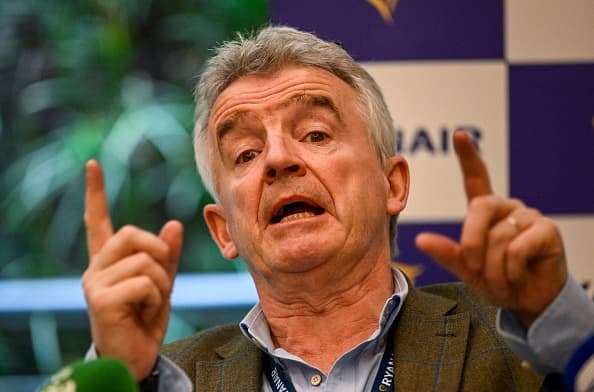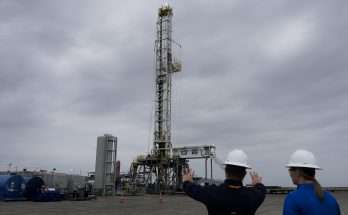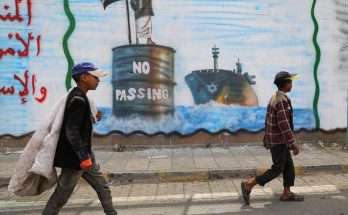
Ryanair Group CEO Michael O’Leary delivers remarks during a press conference in Lux Lisboa Park Hotel.
Horacio Villalobos | Corbis News | Getty Images
The chief executive of budget airline Ryanair has said that the most effective way to target Russia amid its ongoing onslaught of Ukraine is to ramp up oil production in the West.
Speaking to Sky News Wednesday, Michael O’Leary said that Russia — one of the world’s largest energy producers — is benefiting from soaring oil and gas prices as supply fears bite in an already tight market.
Further production from Western countries would reduce their reliance on Russia — particularly in Europe, which derives 40% of its oil and gas from the country — and weaken the energy markets on which Russia’s economy strongly depends.
“The most important thing that we in the West can do is drive up oil production, because what hits Russia hardest is low oil prices and low gas prices,” O’Leary said.
Russia’s economy has already been hard hit by Western sanctions, with markets slipping into freefall and the Russian ruble tumbling almost 30% against the dollar. But so far it has done little to deter President Vladimir Putin’s resolve to seize control of Ukraine.
Global energy markets, meanwhile, have rallied amid concerns over further disruption to the oil and gas pipelines which carry Russian products through Ukraine, and some have accused Putin of trying to weaponize the West’s reliance on its hefty energy supplies.
U.S. oil climbed to the highest level in more than a decade in Wednesday trade, with global benchmark Brent topping $111 per barrel as crude’s blistering rally continues.
O’Leary, whose budget airline business is heavily exposed to energy costs, said his company was able to absorb further energy price hikes into 2023 without passing on costs to consumers.
“We have hedged out about 80% of our fuel needs out to March 2023. So for this summer, and for the rest of this year, we’ll still be able to pass on low oil prices and low fares to our customers because we have a very strong fuel hedging position,” he told Sky News.
However, he noted that the coming 12 months are likely to be “very difficult for most airlines,” especially as they vie to recoup losses endured during two years of Covid-induced travel restrictions.
OPEC and its oil-producing allies, including Russia, are due to meet Wednesday to discuss April’s energy output.
It follows a meeting Monday of the International Energy Agency, which includes the United States and Japan, where members agreed to release 60 million barrels of crude from their reserves to try to quell the sharp increase in prices.


